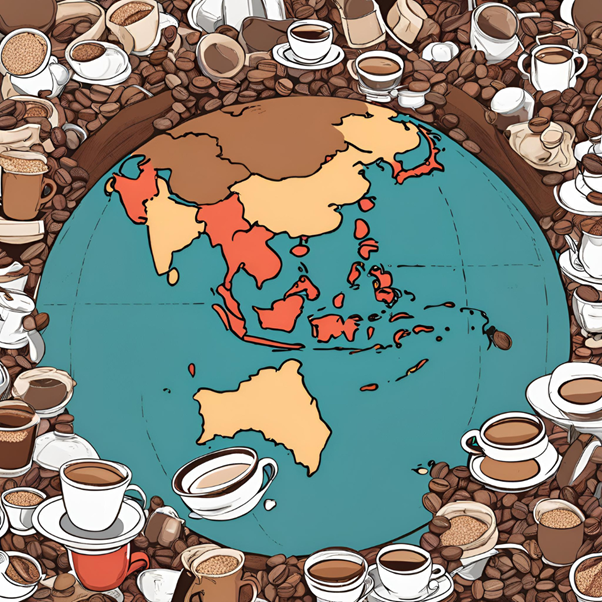From Crisis to Opportunity: Lessons for Indonesia Amid Surging Global Coffee Prices

Surging Coffee Prices: Lessons for Indonesia’s Coffee Industry
Global coffee prices have soared to unprecedented levels, with Arabica beans reaching $3.44 per pound—an 80% increase this year—while Robusta prices also hit record highs. This surge stems from extreme weather conditions in Brazil and Vietnam, the world’s largest producers, coupled with rising global demand. As Indonesia navigates its role as a key coffee exporter, these trends offer both challenges and opportunities.
The Global Coffee Crisis
In Brazil, severe droughts and heavy rains have jeopardized coffee flowering, raising fears of reduced yields for 2025. Vietnam’s Robusta plantations have faced similar weather disruptions, further straining global supply. Coffee, the second most traded commodity after crude oil, is also grappling with growing demand, particularly in emerging markets like China, where consumption has doubled in the past decade.
Major players like Nestlé and Lavazza, which have historically absorbed price fluctuations, are now poised to pass on costs to consumers. This shift underscores the industry’s fragility amid climatic and market pressures.
Implications for Indonesia
As the fourth-largest coffee producer globally, Indonesia’s diverse coffee portfolio, including Arabica and Robusta, positions it to navigate these challenges strategically. However, local producers must tackle vulnerabilities such as climate change, limited yield optimization, and global competition.
Indonesia can learn from Brazil and Vietnam by investing in climate-resilient farming practices, such as agroforestry and drought-resistant coffee strains. Moreover, enhancing processing techniques and certification programs (e.g., organic or fair trade) could boost competitiveness and command higher prices on the global stage.
Opportunities in Growing Demand
With global consumption rising, Indonesia could expand its coffee exports to emerging markets while capitalizing on its unique specialty coffee varieties, such as Gayo and Toraja. Domestically, rising prices might encourage coffee entrepreneurs to innovate with product diversification, from ready-to-drink beverages to sustainable packaging. The current coffee price crisis serves as a wake-up call for Indonesia to fortify its coffee industry. By prioritizing sustainability, investing in farmer resilience, and exploring new market opportunities, the nation can turn global challenges into a catalyst for growth in its coffee sector.
REFERENCE
Coffee price surges to highest on record (2024) https://www.bbc.com/news/articles/c36pgrrjllyo


Comments :